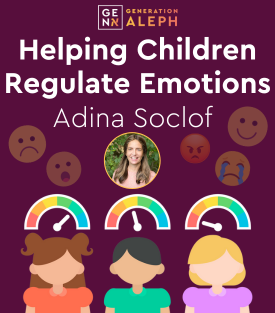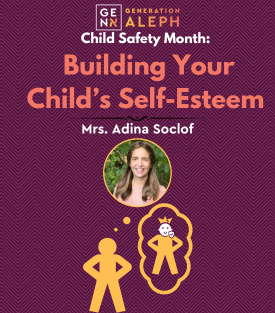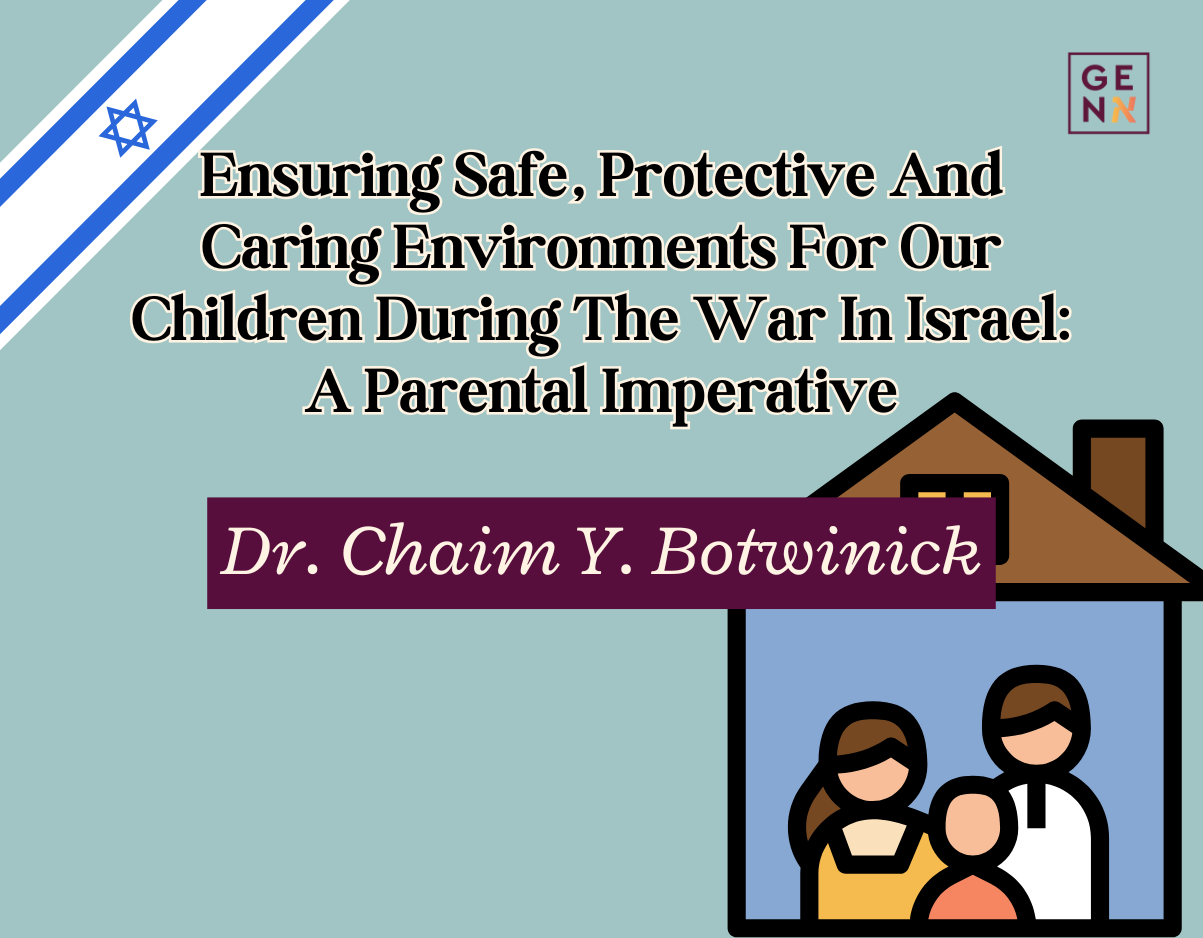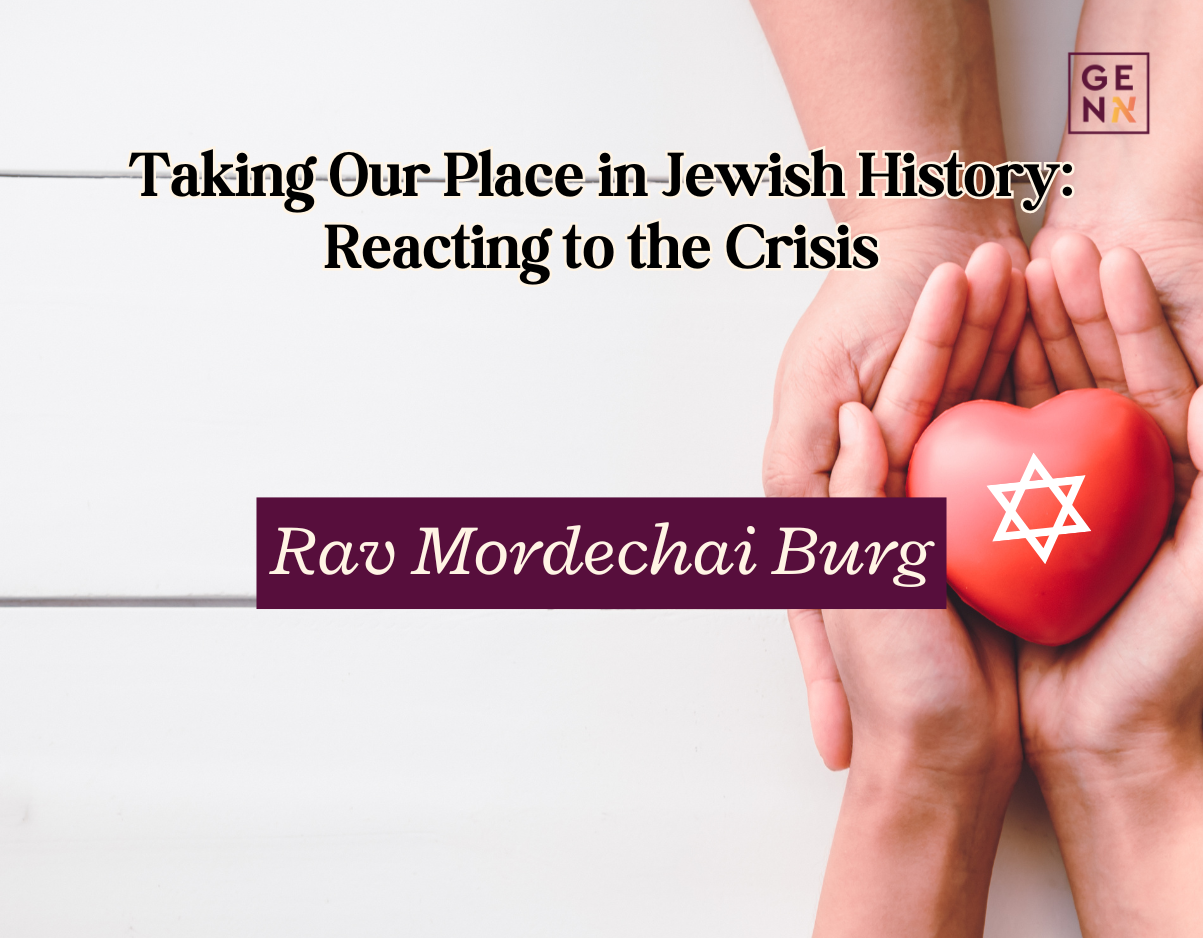In a fascinating interview on Meaningful Minute, trauma expert and founder of Our Place, Sonny Perlman (shout out another old school Far Rockaway family!), gave language to what so many of us are feeling these days. In a word, unloved. And why is that so significant? Sonny brilliantly explains that self esteem is built of worthiness and competence. If we think of ourselves as a car then the worthiness is our gas tank and our competence is the car. Irrespective of how beautiful the body of the car is, without gas (worthiness) in the car you are not going anywhere. So where does worthiness come from? As we have explored in several articles to date, worthiness comes from the feeling of belonging one gets through a healthy attachment to our immediate family, our extended family and our community. When a child is raised with unconditional positive regard, the knowledge that I am deeply loved even in my worst moments, they grow up with a deep sense of their own worthiness. For me the tremendous insight of this interview was Sonny’s definition of trauma. He defined trauma as anything that tells you that you are not worthy. A child who is hurt by someone who is supposed to love him asks himself, “Am I actually worthy of being loved?”
Which brings us to the environment that we are encountering today. Jewish adults and children alike are asking themselves, why does the world hate us? Why are we viciously attacked? Why were horrific atrocities committed against 1500 of our brothers and sisters and why does the world march with those who committed said atrocities? We grew up hearing stories of the Holocaust and somewhere deep in the recesses of our heart we may have asked a question or two about our belonging in this world but it was somewhat abstract. Open up the news today and you will see thousands of protests against Israel, swastikas being painted on Jewish stores, people tearing down posters of the over 200 hostages that are still being held captive in Gaza. Why is it that the world calls for a humanitarian pause to ensure the safety of Palestinian citizens but somehow that humanitarian pause does not consider the humanity of our hostages?
Consider the difference in these two New York Times headlines: When a 6 year old Muslim boy was tragically murdered in Chicago the headline read: “6-Year-Old-Boy Fatally Stabbed in Anti Muslim Attack, Authorities Say.” The subheading read: “Officials said they considered the attack, outside Chicago, a hate crime, tied to the fighting in Israel and Gaza.: In contrast, when a Jewish man was murdered in Los Angeles the NYT headline read: “Jewish Man Dies After Altercation at Dueling Protests in California.” The subheading read: “The episode occurred in a suburb outside Los Angeles amid pro-Israel and pro-Palestinian demonstrations.” Why is it that a Muslim is “fatally stabbed” and a Jew somehow just “dies”? Why is one an “attack” and the other an “episode”? Have you noticed that when the news broadcasts reports about Palestinian attacks against Israel they call it a war but when we protect ourselves they call it a war crime?
Sonny nailed it when he described the traumatic environment we are living in today. Jews don’t just feel unsafe, our fundamental feeling of belonging in this world is under attack. Our children are asking themselves, “If the world is allowed to hurt me, maybe that means I am not worth protecting.” Adults who have built up a strong sense of resilience may not be identifying with these feelings but I can assure you that our children (and many adults for that matter as well) are going through this, even if they don’t have the language to articulate these feelings. Our children are paying attention very carefully. They are also hearing the stories of Jewish kids on college campuses taking down their Mezuzahs for fear of being harassed. They have seen the videos (watching behind their parents back when the parents did not know they were looking) of tens of thousands of Pro-Paestinian protestors chanting from the river to the sea. They overheard the quiet conversations between parents wondering if it was safe to go into the city. Make no mistake about it, these are traumatic times.
So what’s the solution? I don’t know if there is one specific solution but there is definitely a general direction that we as parents can take during these times. If the world is telling our kids that they don’t belong then we need to take serious steps to ensure that our children have a feeling of belonging at the very least from within our community. We cannot control what the outside world does (though we may be able to filter some of it so that our children are not constantly exposed to these traumatic experiences) but we can ensure that within our community they feel a deep sense of love and belonging. Reasonable people can disagree as to whether or not they should send their children to the rally in Washington this Tuesday. I have heard some argue that the best thing our children can do for Am Yisrael right now is to sit and learn Torah in the merit of protecting our precious soldiers. Others argue that sometimes we need to daven with our feet and in these difficult times we must send a powerful message to Washington that American Jewry stands united with Israel. I am not here to take a stand on issues such as these and I will keep my personal opinions to myself. However, I do believe that at the center of this decision we ought to be asking ourselves is what will give our children the feeling of love and belonging that they so desperately need. If Sonny is right, and every fiber of my being believes that he is, then we are in serious need of refueling. I personally grew up going to rallies for Soviet Jewry and then later during my high school years protesting Nazi war criminals who were living in America. While I may not have had the language at the time to express what it meant to me, looking back I can share that it gave me a real sense of Jewish pride and belonging in the Jewish community. And I don’t mean to limit this conversation to the rally in Washington. Anything we can do to help our children feel a sense of attachment to the community is meaningful. Participating in Chesed projects, learning with a specific soldier in mind, writing letters to the soldiers or to government officials, visiting the bereaved families etc… it goes beyond activism. It lets our children know that they are part of a family that loves them regardless of what the world says about us.
As parents we must always ask ourselves, what is within my control and what is within my influence. We cannot control the messages that the world is sending to our children. We cannot control their feeling of being unloved by the world at large. We can control the messages we send our children. We have some influence over whether or not they feel a sense of belonging within our own community. The fuel tank for many has been seriously depleted. If we do not take the time to refuel, I am seriously concerned what the impact will be on our children.
Rav Mordechai Burg is the Menahel of Mevaseret, Mashpia of NCSY Summer, Mashpia of Nitzotzos, author of Nitzotzos on Chumash and a senior Rebbe at Tomer Devorah and Bnot Torah Institute. His shiurim can be found on Nitzotzos.com.
Submit your questions
"*" indicates required fields











